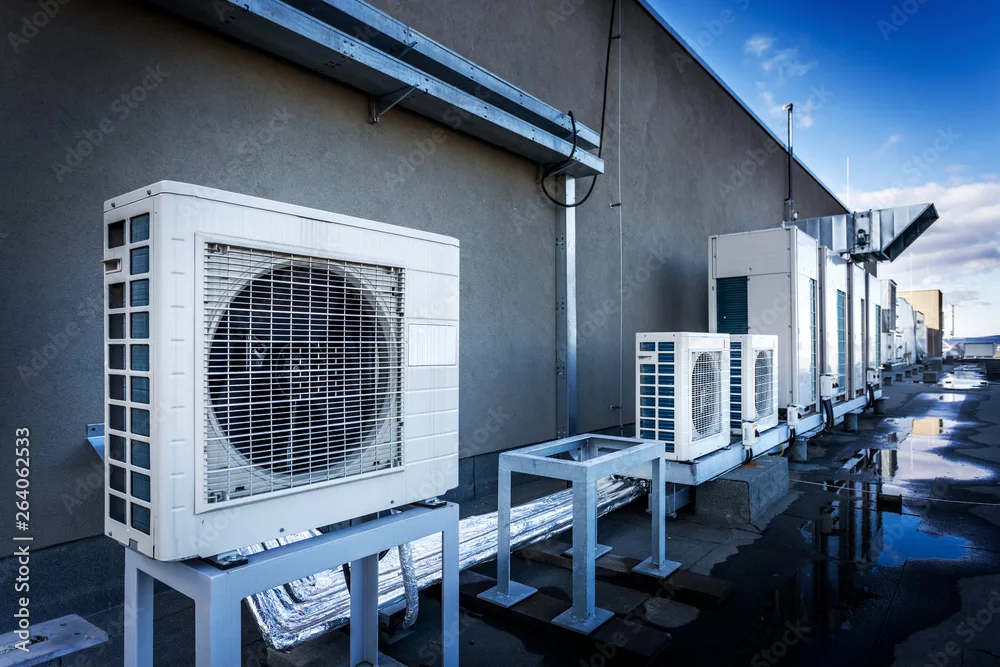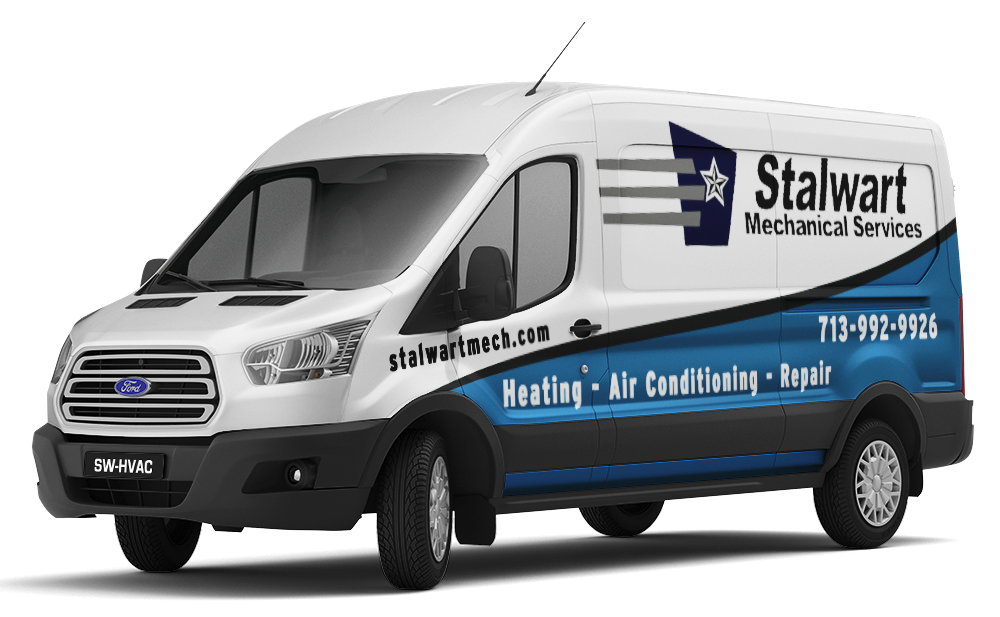The Ultimate Guide to Choosing the Right HVAC System for Your Home

Buying a new HVAC system is a significant investment that greatly impacts the comfort and enjoyment of your home. With options and information available, it’s natural to feel overwhelmed. However, by understanding the different types of HVAC systems and considering various factors, you can make an informed decision and select the right system for your home. We’ll provide valuable insights and tips to help you navigate the process and find the ideal HVAC system.
HVAC stands for Heating, Ventilation, and Air Conditioning. These systems are designed to regulate a home’s atmosphere and control heating and cooling temperatures, ensuring a comfortable environment for you and your family. Common components of HVAC systems include ductless AC units, boilers, central air conditioners, heat pumps, and furnaces. Each type of system has its advantages and is suitable for different home configurations and requirements.
Let’s explore the different types of HVAC systems to give you a better understanding of their features and benefits:
- Split Systems: Split systems are the most common type of HVAC system. They consist of separate units for cooling and heating. The outdoor unit contains the compressor and condenser, while the indoor unit contains the evaporator coil and air handler. Split systems are versatile and can be used in various home setups.
- Hybrid Systems: Hybrid systems offer enhanced energy efficiency by combining a traditional fuel-based system, such as a gas furnace, with an electric heat pump. These systems automatically switch between the two heat sources based on outdoor temperatures, optimizing energy usage and reducing utility costs.
- Ductless Systems: Ductless systems are an excellent option for homes without conventional ductwork. These systems combine air conditioning and heat pump functionalities in a single unit. Ductless systems provide individual temperature control for different zones or rooms, offering flexibility and energy efficiency.
- Packaged Systems: Packaged systems are ideal for homes without basements or limited indoor space. In a packaged system, all components, including the compressor, condenser, and evaporator, are housed in a single unit, usually installed outdoors. Packaged systems are compact and provide both heating and cooling capabilities.
Now that you have a better understanding of the different types of HVAC systems, let’s delve into the essential factors to consider when choosing the right system for your home:
- Home Comfort: Consider the impact of the HVAC system on indoor temperature, energy consumption, and air quality. Some offer features like UV lights to improve indoor air quality by reducing bacteria and mold growth.
- Efficiency: Assess the efficiency of the system by looking for ratings such as SEER (Seasonal Energy Efficiency Ratio), HSPF (Heating Seasonal Performance Factor), AFUE (Annual Fuel Utilization Efficiency), and EER (Energy Efficiency Ratio). Higher ratings indicate better efficiency. Aim for a minimum SEER rating of 15 for optimal energy savings.
- Capacity: Ensure that the HVAC system’s capacity matches the heating and cooling needs of your space. This can be determined by checking the BTU (British Thermal Units) rating, which indicates the amount of heat the system can add or remove from the air per hour.
- Programmable Thermostat Compatibility: Choose a system compatible with a modern, programmable thermostat. Programmable thermostats allow you to set temperature schedules and optimize energy usage, leading to significant cost savings over time.
- Maintenance Requirements: Opt for a system with low maintenance needs. Additionally, negotiate a service plan with your HVAC contractor that includes regular inspections and repairs to ensure the system operates efficiently and lasts longer.
- Sound: Consult your HVAC contractor to select a unit that aligns with your noise tolerance levels. Noisy HVAC systems can be disruptive, especially if installed in living spaces or bedrooms.
- Price: While budget is an important consideration, prioritize comfort, energy efficiency, and durability over upfront cost. Investing in a high-quality system might have a higher initial cost but can save you money in the long run through energy savings and reduced repair needs.
Now that we have covered the essential factors, let’s explore the costs associated with different types of HVAC systems:
- Central Air Conditioner: a central air conditioner typically ranges from $3,350 to $5,950.
- Heat Pump: Conventional heat pumps usually cost between $4,000 and $8,000, while geothermal heat pumps have a higher price range of $15,000 to $35,000 due to their advanced technology.
- Furnace: a gas furnace ranges from $1,800 to $4,000. Oil furnaces are pricier, ranging from $4,200 to $6,900, while electric furnaces are more affordable, typically costing between $1,600 and $2,500.
- Boiler: Boilers are generally priced between $1,500 and $3,500.
When choosing the right HVAC system, consider the following additional factors:
- System Size: the HVAC system you select should be appropriately sized for your home. An oversized or undersized system can lead to inefficient operation, increased energy consumption, and compromised comfort. It’s best to consult an HVAC professional to determine the optimal system size for your specific space.
- High-Efficiency: Investing in the highest efficiency system within your budget is a wise long-term decision. High-efficiency systems offer better energy savings, lower utility bills, and a reduced environmental impact.
- Contractor: Selecting an experienced HVAC contractor is crucial. A reliable contractor will evaluate your needs, customize the system accordingly, and provide expert recommendations. Look for contractors who are licensed, insured, and have a good reputation in the industry.
- Indoor Air Quality (IAQ) Components: Consider incorporating add-ons like humidifiers, air purifiers, or air filtration systems to improve indoor air quality. These components can remove allergens, particulates, and other pollutants from the air, providing a healthier living environment.
- Warranties: Compare the offers from different manufacturers and contractors. Opt for systems with transferable warranties, as they can be beneficial when selling your home, adding value and providing peace of mind to potential buyers.
As intimidating as the process might seem, Stalwart is here to assist you every step of the way. With our extensive knowledge and exceptional service, we’ll help you navigate the overwhelming options and ensure optimal comfort and energy efficiency in your home. Trust Stalwart as your reliable partner in making the right choice for your HVAC needs. Contact us today for personalized assistance, and let us enhance your home’s comfort for years to come.
For expert guidance in selecting the ideal HVAC system for your home, reach out to Stalwart AC and Heating. We understand that buying a new HVAC system is a significant investment that greatly impacts your home’s comfort and enjoyment. With our extensive knowledge and exceptional service, we’ll help you navigate the overwhelming options and ensure optimal comfort and energy efficiency in your home. Trust Stalwart as your reliable partner in making the right choice for your HVAC needs.
Contact us today for personalized assistance, and let us enhance your home’s comfort for years to come. Your satisfaction and comfort are our top priorities.

Contact Us
Air Conditioning : : Heating : : Contact Us
Serving These Communities





